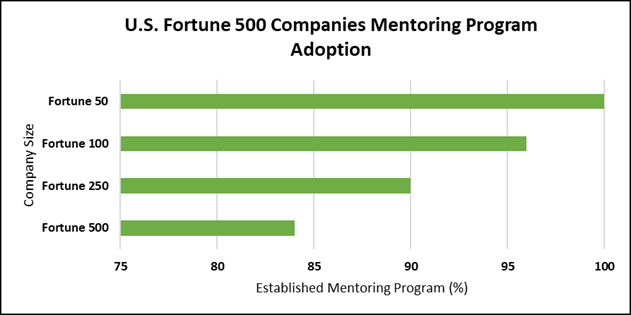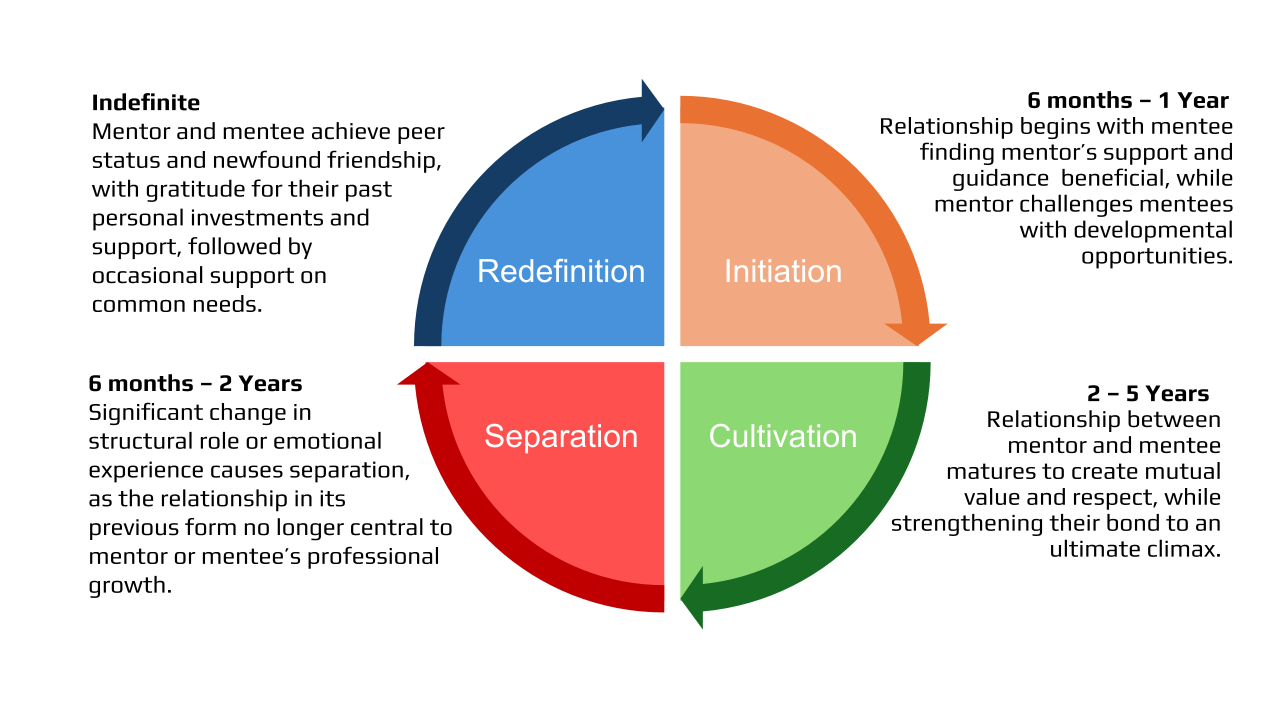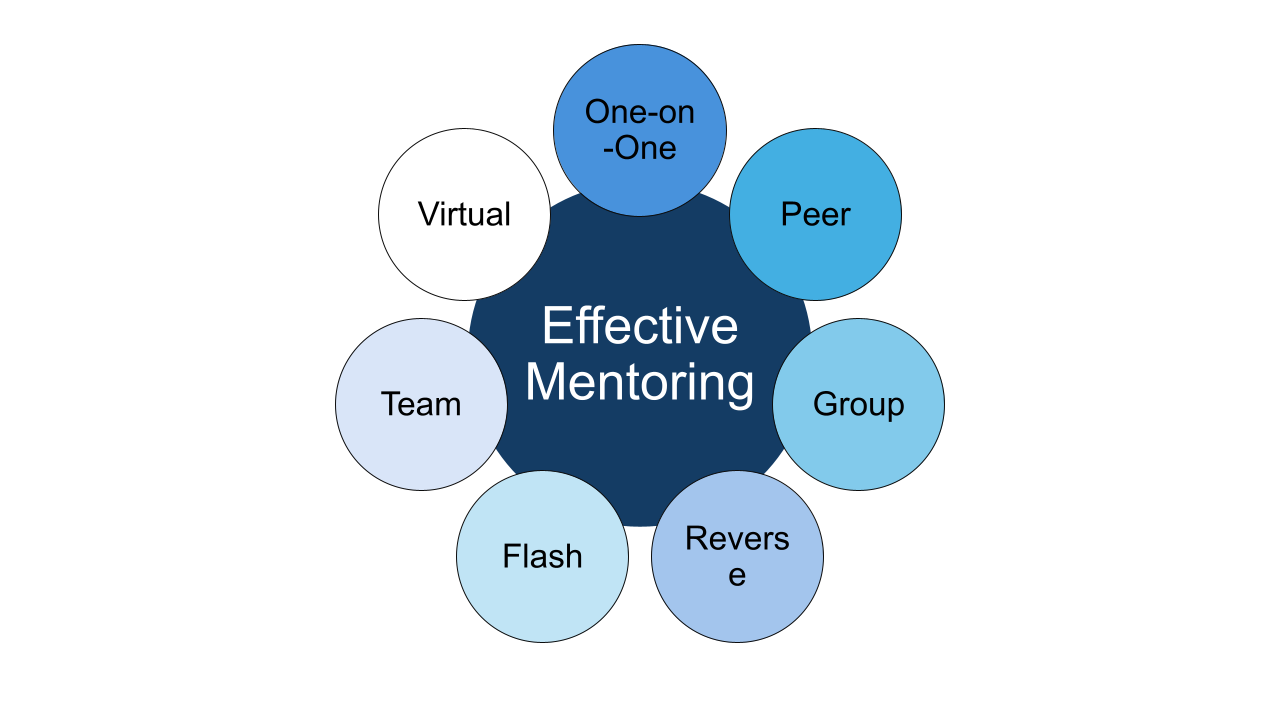Unlocking Potential: Empowering the Next Generation of Cyber Leaders Through Mentorship
Ensuring our nation has a capable, qualified and ready-to-deploy cyber workforce is a national security imperative. We can’t ignore shortfalls and hope for the best. We can’t rely on computer networks to maintain and defend themselves.
The United States must be intentional about building the “cyber bench” before a catastrophic event impacts our way of life, and skilled technology professionals are nowhere to be found.
This day is more imminent than one might think, which means we must look beyond the single cyber career path model, starting with cyber youth programs to STEM degrees, because it takes decades to materialize fully. We must promote interdisciplinary pathways that span diverse fields to capture vital competencies, such as problem-solving, critical thinking, risk management and adaptability. The personal connection established through mentoring is the strategic lever to encourage mentees to pivot careers, ‘show the ropes’ on how to shorten the learning curve and build confidence in their ability to make a difference. As a result, mentoring is the difference-maker in developing the next generation of cyber leaders and whether we win or lose in the cyber domain.
The Disconnected Cyber Talent Pipeline
The technology industry in the United States and more developed countries has long lamented shortfalls in accessible and capable cyber talent to meet the demands of a hyper-connected future. In the United States, recent reports indicate an existing deficit of 265,000 cybersecurity professionals needed to fill current openings. These severe shortages are felt across all sectors—public and private—and are concerning as we consider the capabilities required to build, operate and secure the cyber domain.
Further compounding the talent shortages, technology professionals experience high levels of job-related stress and burnout, which can negatively impact the retention of qualified talent in essential roles. As reported in the May 2025 SIGNAL Magazine article Is the Cyber Workforce Shortage a Myth?, “inadequate salaries, undesirable job locations and the demands of some jobs” may hinder cyber workforce participation by qualified professionals. Cyber was historically hailed as a profession offering a high quality of life, including lucrative rewards in beautiful places; however, the realities of cyber work may be different.
While colleges and universities have remained at the forefront of cyber workforce learning and development for decades, private industry and the public sector have prioritized cultivating cyber talent in recent years. Google rolled out entry-level cybersecurity certificate programs available to anyone with an internet connection. IBM, Cisco and Amazon Web Services (AWS) all offer online programs to assist with training aspiring cyber professionals.
Perhaps the solution is not found in rolling out more programs, but in personal connection. Mentorship, an often-overlooked workforce investment tool, could present a very real solution to these ongoing challenges. The future of the cyber workforce depends on a whole-of-community approach to actively engage in the continued development of the nation’s next generation of cyber leaders.
Mentorship: the Missing Piece of Cyber Talent Engagement
Empowering the next generation of leaders to join the cyber workforce can be accomplished through mentoring aspiring cyber professionals who would benefit from experienced insights. No two professional journeys are the same, and receiving guidance from more seasoned industry leaders on navigating career-related challenges and exploring opportunities can make a world of difference in terms of individual outcomes and successful recruitment and retention in the cyber workforce. Effective mentors can serve multiple roles, including advisers, sponsors, advocates and network builders. Mentors can help mentees see opportunities that they didn’t even know existed.
U.S. Fortune 500 Companies recognized the power of mentorship in organizational performance and subsequently prioritized such human capital investments as a result.
While every mentor-mentee relationship is unique, Kathy Kram outlined four predictable phases—initiation, cultivation, separation and redefinition—in her landmark research, Phases of the Mentor Relationship. Following a structured or phased mentorship cycle can help equip the mentee to excel in their current role and prepare for the next promotion or pivot. The mentor’s willingness to connect in a meaningful way enables them to orient their mentees’ minds to a newfound professional identity and shape their “possible selves” to make an impactful contribution to the cybersecurity field.
In addition, mentors may take actions to help the mentee expand their professional network through strategic introductions, recommend the mentee explore additional cyber certifications and fellowships and advocate for the mentee as a potential candidate for future leadership positions within or outside the organization. All these purposeful actions extend beyond simply giving advice—they help the mentee chart their course and reach new heights, an integral component in continued career development.
Success requires more than just hard skills, such as coding, network security and incident response. While technology helps to understand the foundational elements of the cyber profession, mentoring provides the human component, including enhanced self-awareness, the cultivation of leadership skills and the identification of new professional interests and cross-sector applications. An effective mentor-mentee relationship can prompt professionals toward deliberate skill development and powerful contributions throughout their unique career journey.

Different Types of Mentoring
Mentorship can take on many forms, and is best implemented when it’s customized to the parties involved, versus attempts at “one-size fits all” approaches. Communication methods, frequency of meeting and duration of the relationships should be tailored on an individual basis. For example, a junior military member who has a busy schedule may prefer monthly phone calls with their mentor during the commute hour, while a graduate student located in the same city as a mentor may prefer in-person coffee link-ups to discuss career challenges and related options as they arise.
According to the technology company, Guider, seven different types of mentoring are readily available:
1. One-on-One Mentoring - This is the most traditional form of mentoring, which involves seasoned professionals guiding less experienced mentees in their developmental journeys.
2. Peer Mentoring - A reciprocal relationship between individuals of similar rank, experience or positions, who have interchangeable mentor/mentee relationships to support collaborative learning.
3. Group Mentoring - One mentor may engage with multiple mentees in a group setting, facilitating shared learning and discussion for the collective benefit.
4. Reverse Mentoring - Inverts the traditional hierarchy of more senior professionals mentoring more junior professionals. In Reverse Mentoring, junior professionals mentor senior leaders, providing a fresh perspective and frontline insights to help overcome blind spots.
5. Flash Mentoring - This type occurs quickly, in a short amount of time, and is hyper-focused on a specific objective or problem that needs to be addressed. This could happen in person or via a quick email or text message.
6. Team Mentoring - Moving toward a group focus, this involves groups of mentors and mentees working collaboratively to develop a supportive ecosystem that’s designed around reaching a common goal.
7. Virtual Mentoring - This transcends geographical bounds via communication platforms. SCORE’s mentorship matching program provides an excellent example of the scale to which virtual mentoring can make an impact, as it supports entrepreneurs nationwide.

Figure 2
Empowering Cyber Talent Through Effective Mentorship
Striving to have a cyber workforce that matches the demand signal is a perennial problem. However, we are now at a strategic inflection point, which necessitates bold and decisive actions. The future cyber professionals are around us every day, from all places and all phases of life. Leaders from across sectors, including transitioning service members, military spouses, rural residents, family caregivers and professionals from nontraditional technical backgrounds, are often overlooked; however, they represent a critical solution to closing the cyber talent gap. The 2024 ISC2 Cybersecurity Workforce Study highlighted how focusing on the interdisciplinary pathway, outside mainstream academia, widens the pool of highly qualified individuals with the capacity and drive to be valued members of the cybersecurity profession.
The 2023 National Cybersecurity Strategy highlights, “Building and maintaining a strong cyber workforce cannot be achieved unless a cybersecurity career is within reach for any capable American who wishes to pursue it and every organization with an unfilled position plays a part in training the next generation of cybersecurity talent.” While cybersecurity takes years to accumulate a body of knowledge with sufficient depth and breadth, mentoring shortens the learning curve for knowledge transfer and development for members at every echelon of the organization. By mentoring others to fill in the knowledge gaps from every walk of life, we can help them develop into effective leaders in the cyber field.
You don’t have to be a cyber commander, college professor or executive to get involved on the frontlines of cyber workforce development through mentoring. Anyone who is passionate about serving the nation and willing to volunteer a little time as a mentor can empower the next generation of cyber leaders. Moreover, it doesn’t take a well-funded corporate program or a glitz and glam kickoff event to inspire, equip and encourage others in this notable and much-needed field. People are the greatest competitive advantage to attack national security threats across the spectrum of conflict. We need to recruit the best, promote the best and retain the best talent to ensure America wins against all enemies. We are in a ‘war for talent’ and mentoring is the catalyst to ensure the nation is unquestionably the best in the world.
Lt. Col. Gilberto S. Perez is the deputy director for Intelligence and Operations Directorate (A2/3) for the 688th Cyberspace Wing and deputy commander of the 690th Cyberspace Operations Group, Joint Base San Antonio, Texas. As a career cyber officer, he leverages his experience to mentor the next generation of leaders. Perez is also a dedicated member of the AFCEA Cyber Committee and Alamo Chapter vice president of military affairs.
Hannah Becker is the vice president of Becker Digital, a Service-Disabled Veteran-Owned Small Business that provides management, technology and training services to government agencies. She has been a faculty member at Norwich University, Virginia Military Institute and Ottawa University. She is also a member of the AFCEA Cyber Committee.
The views expressed here are their own and do not represent the views and opinions of the U.S. Air Force, U.S. Department of Defense or U.S. government.

Figure 3






Comments